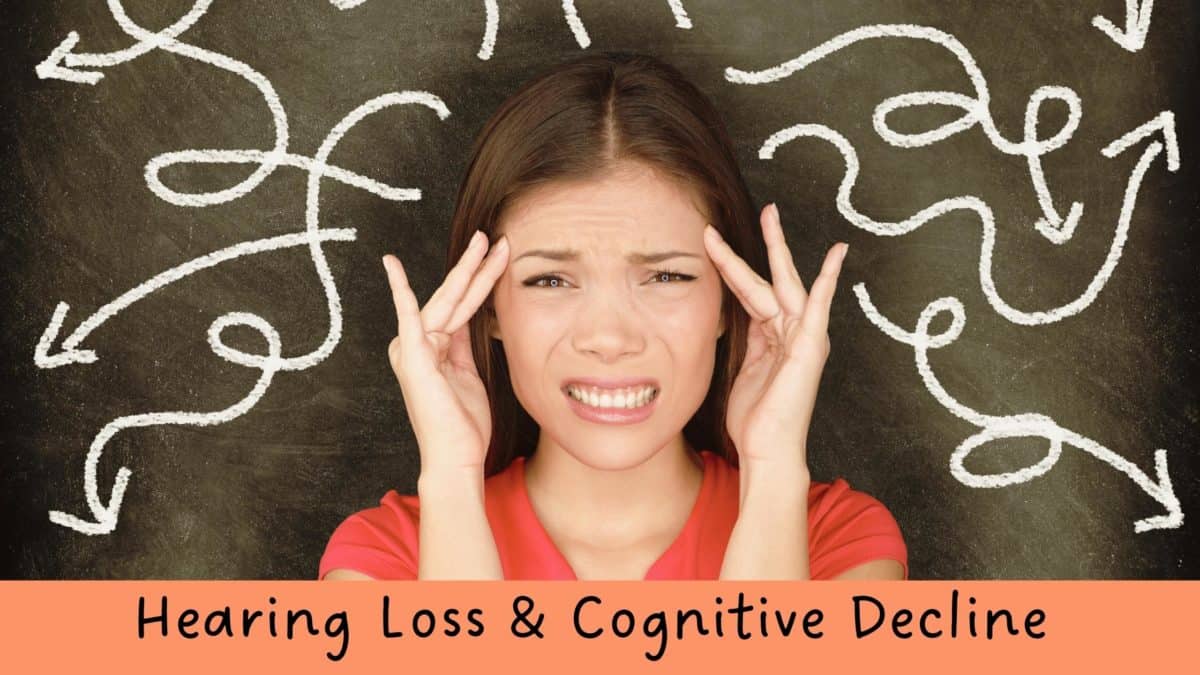- Volunteering for Hearing Health Causes - May 27, 2025
- Questions to Ask During Your Hearing Health Appointment - May 16, 2025
- Exploring Alternative Therapies for Hearing Loss - May 6, 2025
National Alzheimer’s Awareness Month is this month. Researchers have been studying the link between hearing loss and cognitive function for many years. We’ve discovered through this research that there’s a correlation between hearing loss and dementia, including Alzheimer’s disease, and that addressing hearing loss early can help your brain stay healthy.
What is Alzheimer’s disease?
Alzheimer’s disease, usually referred to as Alzheimer’s, is a type of dementia that affects memory, cognition, and behavior. Dementia is a broad term that refers to a considerable decline in mental function that interferes with daily activities. Alzheimer’s disease is responsible for 60-80% of dementia cases.
Alzheimer’s disease is not a normal part of aging, contrary to popular assumptions. Early-onset Alzheimer’s disease can affect people under the age of 65. Alzheimer’s is a degenerative illness that worsens over time. It is the sixth leading cause of mortality in the United States. Alzheimer’s disease has yet to be cured, even though it is the topic of significant medical research. Fortunately, there are a variety of medications available to relieve symptoms and delay the onset of Alzheimer’s disease.
Symptoms of Alzheimer’s Disease
“Symptoms normally begin slowly and worsen over time, becoming severe enough to interfere with daily chores,” according to the Alzheimer’s Association. Alzheimer’s disease symptoms include:
- Memory loss
- Difficulty planning or solving problems in daily life.
- Difficulties executing routine chores at home or work, confusion about time and place.
- Difficulty comprehending visual pictures and spatial relationships.
- Difficulties with language when speaking or writing misplacing items/losing the capacity to retrace steps decreased/poor judgment.
- Withdrawal from work or social activities is a common occurrence.
The link between hearing loss and dementia
A Johns Hopkins University study, led by Dr. Frank Lin, has produced the most comprehensive collection of studies on the link between hearing loss and dementia. According to a 2011 study, hearing loss makes older adults significantly more likely to develop dementia over time than those who keep their hearing. Hearing loss and dementia may share a common cause, or the effort of understanding noises may overwhelm the brains of people with hearing loss over time, rendering them more susceptible to dementia.
Four recent international research from England, Taiwan, Germany, and The Lancet journal have supported the findings that hearing loss and dementia are linked.
According to data from the English Longitudinal Study on Aging, persons with hearing loss were more likely to be diagnosed with dementia than normal hearing. According to the study, people with intermediate hearing had a 1.4 times higher chance of dementia. In contrast, those with poor hearing had a 1.6 times higher risk. According to the study’s authors, hearing aids may help delay the onset of dementia or act as a risk indicator of cognitive decline.
The Commission on Dementia Prevention, Intervention, and Care of the Lancet published a study on the risk factors for dementia. Hearing loss was identified as one of nine risk factors, including midlife hypertension, midlife obesity, late-life depression, diabetes, smoking, and social isolation.
We include this information since Alzheimer’s is a type of dementia, and these investigations specifically indicate dementia.
Treating hearing loss could halt cognitive decline
Many of the symptoms of dementia and Alzheimer’s disease coincide with the symptoms of hearing loss. Hearing loss has the potential to create social disengagement and isolation, as well as to interfere with speech and memory, as well as to make everyday chores more difficult.
Hearing loss affects around 48 million people in the United States. People over the age of 55 should get a hearing test once a year to keep track of their hearing ability.
When a hearing loss is diagnosed early on, it may be possible to prevent the development of many linked medical illnesses such as dementia or Alzheimer’s disease. Hearing aids have been shown to have considerable health and well-being benefits when used to correct hearing loss.
You don’t have to live with hearing loss that isn’t treated. If you’ve noticed changes in your hearing, schedule an appointment with us to take the first step toward greater cognitive and emotional health!

